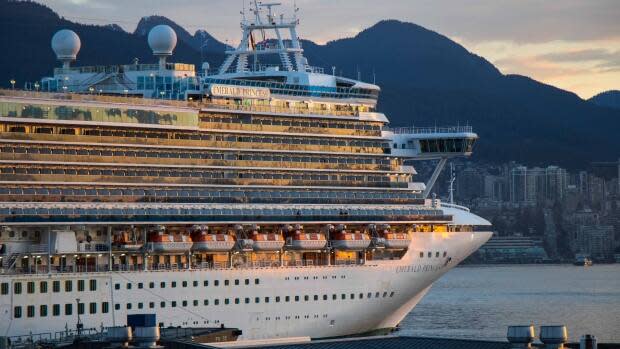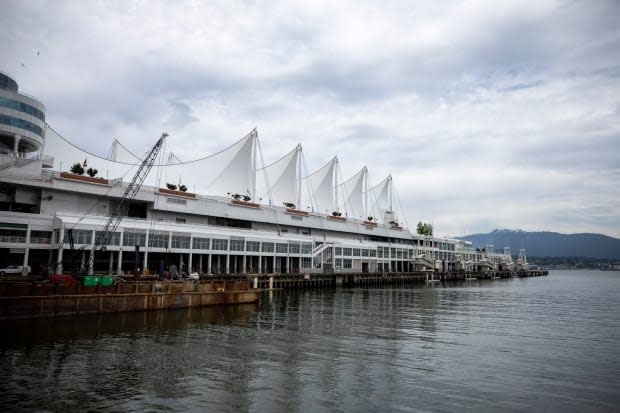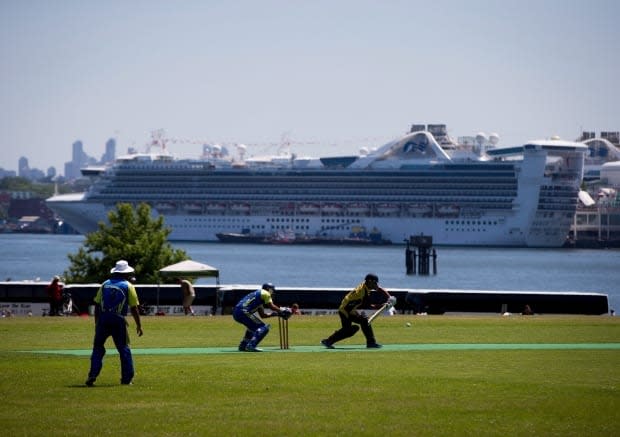Cruise ships to bypass B.C. under proposed Alaska law, prompts worries for battered tourism sector

There are fears British Columbia's tourism industry could be in jeopardy with newly tabled U.S. legislation that would allow cruise ships to sail around current laws and bypass B.C. altogether.
Earlier this month, two senators introduced the Alaska Tourism Recovery Act, designed to kick-start the state's tourism-dependent economy while Canada bans cruise ships until February 2022.
It would allow an exemption to the current and long-standing Passenger Vessel Services Act, which requires international stops on ships flagged in foreign countries.
"By providing this technical fix for Alaska-bound cruise ships from the State of Washington, we are taking significant steps toward safely resuming cruise ship activity and economic certainty at a time when Alaskans need it most," said U.S. Senator Lisa Murkowski in a recent press release.
Now, pressure is mounting on the B.C. government to secure assurances from U.S. counterparts that any such move would be lifted in tandem with travel restrictions.

"The stakes for B.C.'s tourism sector are incredibly high and require engagement by this premier and this government," said opposition B.C. Liberal MLA Mike de Jong during Tuesday's Question Period. "Tourism operators are hanging on by their fingernails already."
He said losing Vancouver, Victoria and Prince Rupert as permanent destinations could have a "devastating impact" on B.C.'s economic recovery, costing the already suffering sector hundreds of millions of dollars.
"What assurance has the premier received from Alaska Senator Lisa Murkowski, who is sponsoring the legislation in Congress, that rule changes allowing cruise ships to entirely bypass B.C. ports will not become permanent?"
The NDP government responded by saying the issue is not within provincial jurisdiction.
"When it's safe, we're going to open up international borders — but that's not up to me," replied Tourism Minister Melanie Mark. "It's up to the federal government; it's their mandate and jurisdiction to manage border control."
"There's a slight chance it could pass, and we're following it closely ... But I'm confident that if it did, it would be temporary, and not become permanent." - Ian Robertson, Greater Victoria Harbour Authority CEO
In a later interview, Mark expressed doubt the legislation would go anywhere.
"The likelihood, the feasibility of this being passed right now in the middle of a global pandemic ... is pretty slim," Mark said.
"I respect Americans fighting for their interests, just like we Canadians are going to fight for our interests; but right now the interest is safety and people getting the vaccine."
U.S. frustrations targeted at Ottawa
The Alaska Tourism Recovery Act was introduced exactly three weeks after U.S. politicians wrote a letter on behalf of Congress to Prime Minister Justin Trudeau, expressing frustration with Canada's steps to limit foreign travel.
"We were shocked by the decision announced by your government last week to extend the ban on cruise ships carrying over 100 passengers until Feb. 28, 2022," read the letter, dated Feb. 12.
"We are particularly concerned that this decision was made without any forewarning to or consultation with Alaska, your neighbour and partner," wrote two senators and the congressman from Alaska.

They said losing access to Canadian ports creates significant disruptions to the cruising season in Alaska and will have a significant economic impact on the state, which is already suffering from the recession caused by the pandemic.
Copied on the letter are the federal ministers of health, transport, public safety, along with the premiers of Yukon and B.C., and the Canadian ambassador to the United States.
It goes on to lobby the federal government to reconsider the upcoming year-long ban on cruise ships in Canadian waters.
"Moving forward, we urge you to consider Alaska an essential stakeholder in your port and waterway closure considerations ... We ask that your government continue to communicate and partner with us on how to safely resume a 2021 cruise season."
'It would be huge'
B.C.'s industry is banking on the bill to stall, and even if it doesn't, many are confident the new rules wouldn't become permanent.
"I've read the legislation; it speaks very specifically to the fact that as long as the Canadian border is closed [these are the proposed measures to be implemented]," said Ian Robertson, CEO of the Greater Victoria Harbour Authority.
"There's a slight chance it could pass, and we're following it closely," he said. "But I'm confident that if it did, it would be temporary, and not become permanent — there's too much built into the current Passenger Vessels Services Act."
However, if the legislation did take effect and last beyond the border closures, Robertson said the fallout for B.C. would be unthinkable.
"It would be significant. It would be huge," he said. "I've heard from many businesses now that we've lost the 2020 season, and it looks like we're going to lose the 2021 season, and they're very, very concerned."
He pointed to the $2.5 billion the cruise industry brings to British Columbia's economy, referencing hundreds of businesses and thousands of jobs that are reliant on cruise tourism.

